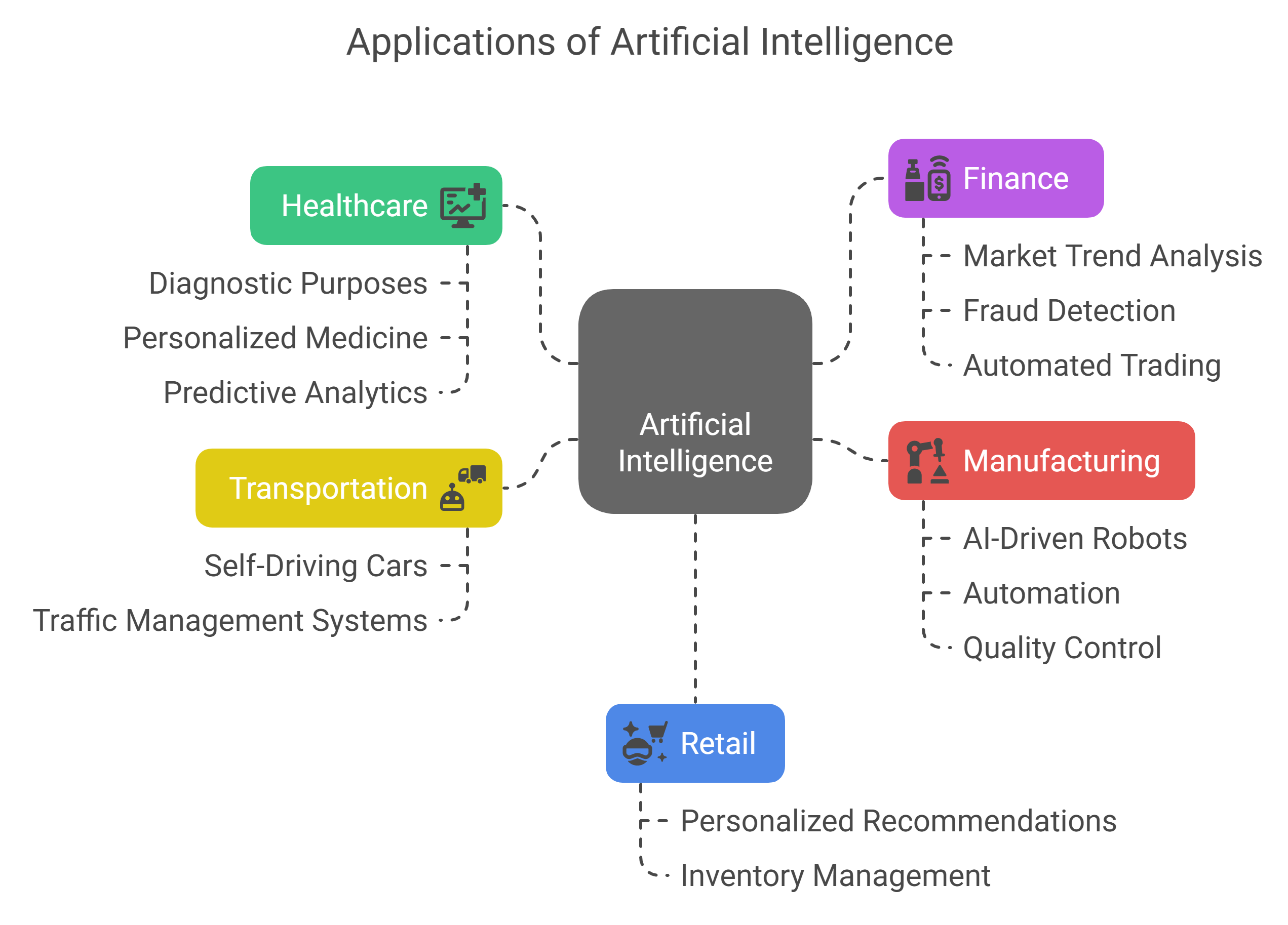Introduction to Artificial Intelligence
Artificial Intelligence (AI) refers to the simulation of human intelligence in machines designed to think, learn, and problem-solve. The concept dates back to the mid-20th century, with pioneers like Alan Turing exploring machine intelligence. AI encompasses a range of technologies, including machine learning, natural language processing, and computer vision. Its goal is to create systems capable of performing tasks that typically require human cognition.
Today, AI influences numerous sectors such as healthcare, finance, transportation, and entertainment. Advances in computational power and data availability have accelerated AI development, transforming it from a theoretical idea into a practical tool. As AI continues to evolve, it raises important questions about ethics, employment, and societal impact, making it a critical area of study and innovation.
Types of Artificial Intelligence
Artificial Intelligence can be categorized into narrow AI and general AI. Narrow AI, also known as weak AI, is designed for specific tasks like facial recognition or language translation. These systems excel within their limited scope but lack consciousness or understanding beyond their programming. General AI, or strong AI, aims to replicate human intelligence comprehensively, possessing reasoning, problem-solving, and emotional understanding.
Currently, narrow AI dominates the landscape, powering virtual assistants and recommendation algorithms. Researchers are actively working towards achieving general AI, which would represent a significant breakthrough, enabling machines to perform any intellectual task a human can. Understanding these distinctions helps in evaluating AI’s capabilities and the future trajectory of technological advancements.
Applications of Artificial Intelligence
AI’s applications are vast and growing rapidly across multiple industries. In healthcare, AI algorithms assist in diagnosing diseases, personalizing treatment plans, and predicting patient outcomes. In finance, AI-driven systems detect fraud, automate trading, and assess credit risk. The automotive industry leverages AI for developing autonomous vehicles, enhancing safety and efficiency.
In entertainment, streaming platforms use AI to recommend content tailored to user preferences. Customer service benefits from AI chatbots that provide instant support. Additionally, AI plays a role in cybersecurity, agriculture, manufacturing, and education. Its ability to analyze large datasets quickly and accurately makes AI an invaluable tool for innovation. As AI continues to expand, its integration promises increased efficiency and new opportunities across all sectors.
Challenges and Ethical Considerations
Despite its promising potential, AI faces significant challenges and ethical concerns. One major issue is bias in AI algorithms, which can perpetuate discrimination if trained on biased data. Privacy concerns also arise as AI systems often require vast amounts of personal information.
Additionally, there are fears about job displacement due to automation replacing human workers in various industries. Ensuring transparency and accountability in AI decision-making is crucial to prevent misuse and unintended consequences. Ethical debates also focus on AI’s potential to develop autonomous weapons or surveillance systems that infringe on individual rights. Addressing these challenges requires responsible development, regulation, and ongoing dialogue among technologists, policymakers, and society to maximize benefits while minimizing harms.
The Future of Artificial Intelligence
The future of AI promises remarkable innovations that could reshape everyday life. Researchers aim to develop more sophisticated AI systems with better reasoning, emotional understanding, and adaptability. Advancements in quantum computing may unlock new levels of AI performance, enabling solutions to complex global challenges like climate change and disease eradication. Human-AI collaboration is expected to become more seamless, augmenting human capabilities rather than replacing them.
Ethical frameworks and regulations will evolve to guide responsible AI development and deployment. AI’s integration into smart cities, personalized medicine, and space exploration offers exciting possibilities. However, ensuring equitable access and managing societal impacts will be vital. The ongoing evolution of AI holds the potential to transform the world positively if guided with foresight and responsibility.






